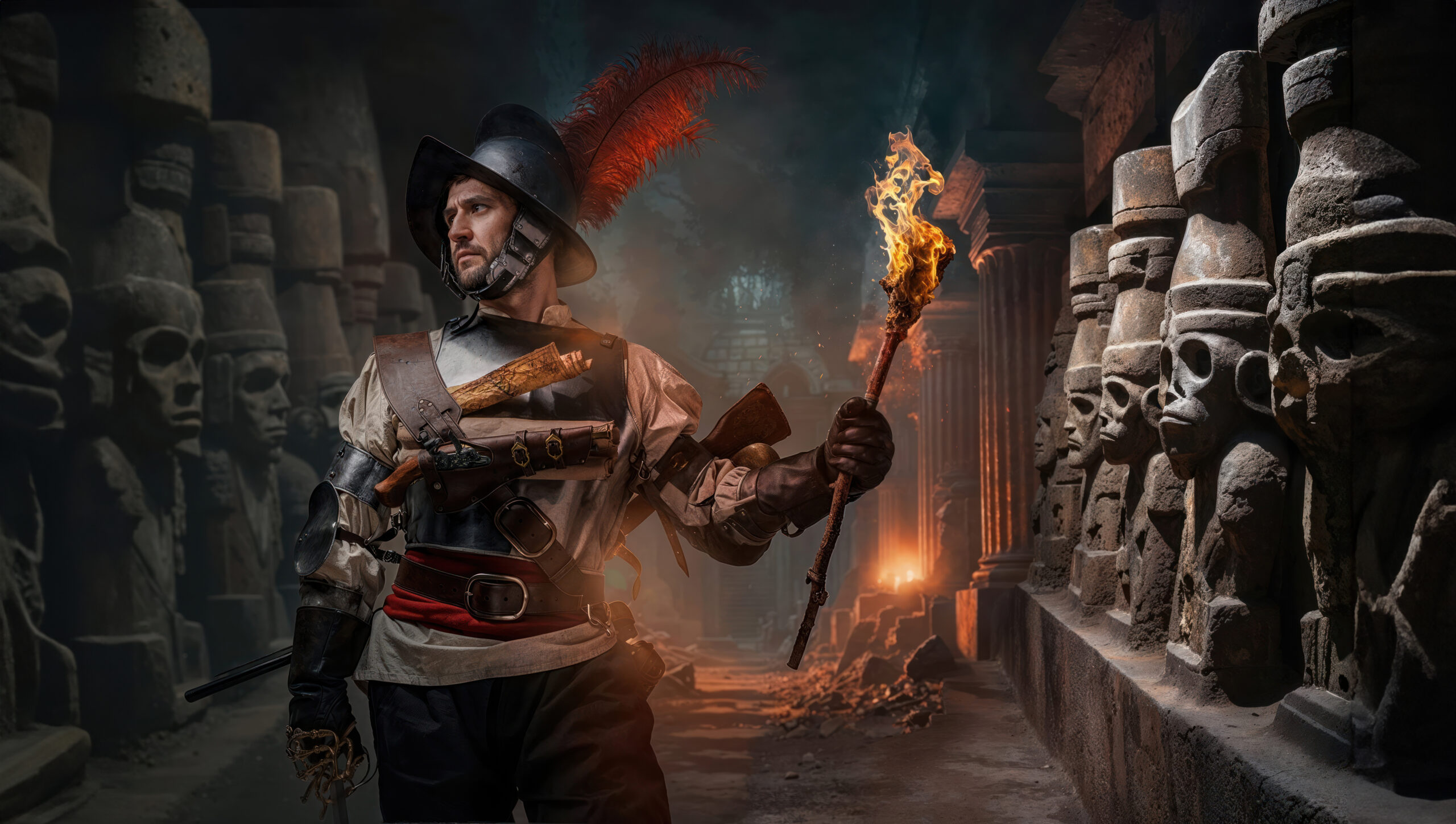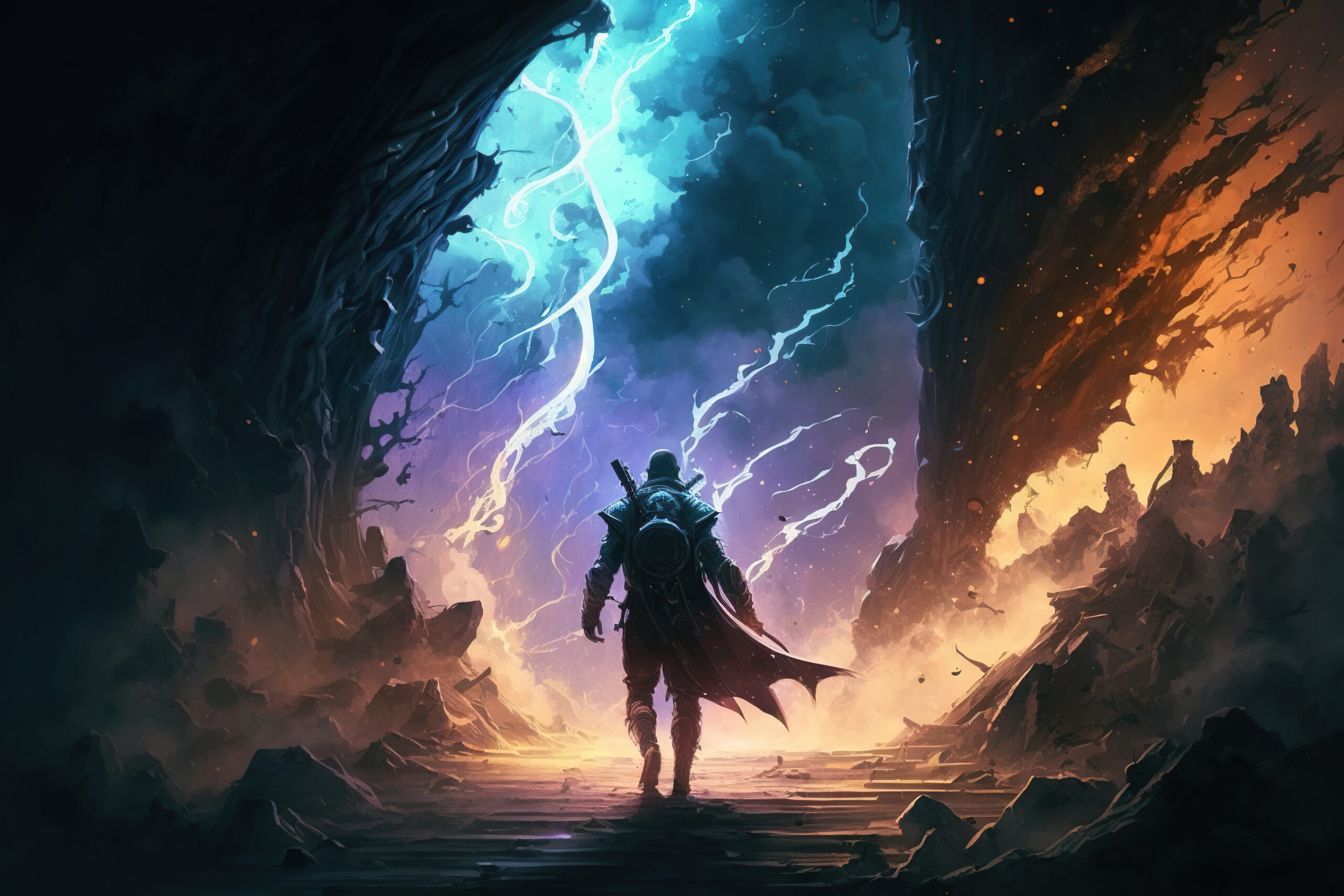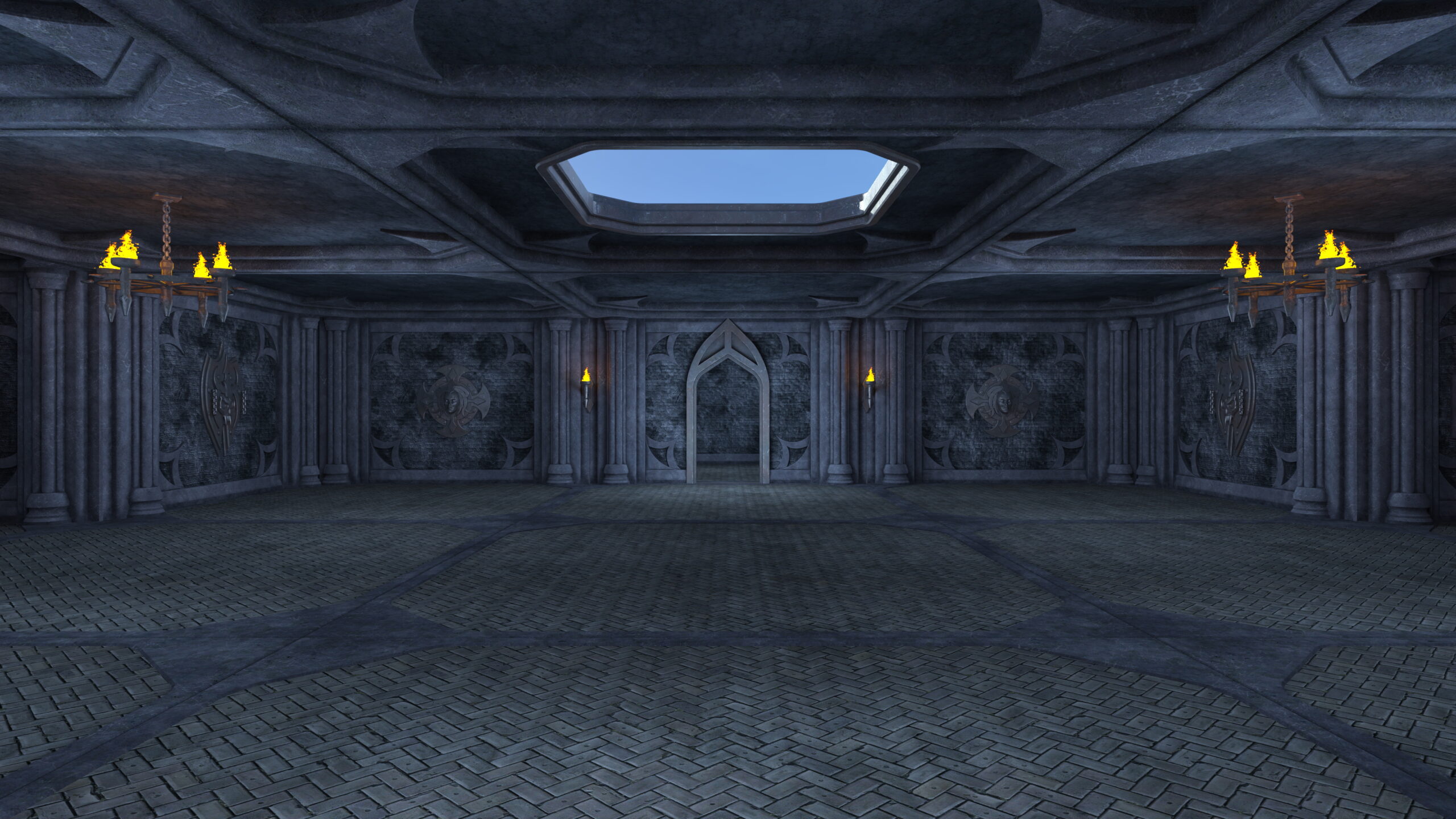 Uncover the latest in Bell Cranel's journey in 'Is It Wrong to Try to Pick Up Girls in a Dungeon? III.' Explore the new characters, intense battles, and the deeper themes of this popular anime series.
Uncover the latest in Bell Cranel's journey in 'Is It Wrong to Try to Pick Up Girls in a Dungeon? III.' Explore the new characters, intense battles, and the deeper themes of this popular anime series.
- Introduction to 'Is It Wrong to Try to Pick Up Girls in a Dungeon? III'
- Plot Overview
- Character Development and New Additions
- Themes and Motifs in Season III
- Fan Reception and Cultural Impact
Introduction to 'Is It Wrong to Try to Pick Up Girls in a Dungeon? III'
 Season III of "Is It Wrong to Try to Pick Up Girls in a Dungeon?"—fondly known as DanMachi—takes viewers on a deeper, more thought-provoking journey than ever before. As Bell Cranel continues his quest in the bustling city of Orario, this season shifts focus towards a complex exploration of morality, empathy, and the blurred lines between humans and monsters.
Season III of "Is It Wrong to Try to Pick Up Girls in a Dungeon?"—fondly known as DanMachi—takes viewers on a deeper, more thought-provoking journey than ever before. As Bell Cranel continues his quest in the bustling city of Orario, this season shifts focus towards a complex exploration of morality, empathy, and the blurred lines between humans and monsters.
The series has always been known for its mix of action, adventure, and lighthearted moments, but Season III delves into much darker themes. This time, Bell encounters the Xenos—monsters who possess human-like intelligence and emotions. Unlike the typical dungeon-dwelling creatures that adventurers are accustomed to battling, these Xenos challenge the very foundation of Orario’s societal norms. Bell, driven by his unwavering sense of justice, finds himself at the heart of a moral dilemma: should he protect these misunderstood beings, even if it means going against the norms of his world?
As the season unfolds, the stakes grow higher, with Bell facing not only physical battles but also inner turmoil. His relationships with the people around him, particularly with Hestia and his fellow adventurers, are put to the test as they grapple with the implications of Bell’s decisions. The anime brilliantly portrays how Bell’s actions ripple through Orario, affecting the balance of power between gods and mortals, and raising questions about what it truly means to be a hero.
Season III also introduces viewers to new characters and deeper character arcs for returning favorites. The bond between Bell and the Xenos becomes a central focus, highlighting his growth as a character who sees beyond the surface. This evolution is not just about strength, but about understanding and compassion—a theme that resonates strongly throughout the season.
For fans of the series, this season is a pivotal chapter that not only advances the plot but also enriches the world of DanMachi. The vibrant city of Orario, with its labyrinthine dungeons and diverse cast, serves as the backdrop for this emotional and philosophical journey. The animation continues to dazzle, bringing the intense battles and heart-wrenching moments to life, while the musical score enhances the epic and sometimes melancholic atmosphere.
In essence, "Is It Wrong to Try to Pick Up Girls in a Dungeon? III" isn’t just another fantasy adventure; it’s a story that challenges its characters—and viewers—to confront their beliefs and question the status quo. Whether you’re a long-time fan or new to the series, Season III offers a compelling narrative that is both entertaining and thought-provoking. It’s a season that asks the hard questions and doesn’t shy away from showing the consequences of the choices its characters make. So, if you’re ready for a season that goes beyond the usual dungeon-crawling escapades, this installment of DanMachi is a must-watch.
Plot Overview of 'Is It Wrong to Try to Pick Up Girls in a Dungeon? III'
 In the third season of "Is It Wrong to Try to Pick Up Girls in a Dungeon?"—often referred to as DanMachi—viewers are introduced to a storyline that takes the series into uncharted emotional territory. The season begins with Bell Cranel, the young and ambitious adventurer, encountering a mysterious group of monsters known as the Xenos. These creatures are unlike any others Bell has faced in the dungeons; they possess the ability to speak, think, and feel emotions just like humans. This discovery sets the stage for a season filled with moral dilemmas, intense battles, and the ever-present question of what it means to be a hero.
In the third season of "Is It Wrong to Try to Pick Up Girls in a Dungeon?"—often referred to as DanMachi—viewers are introduced to a storyline that takes the series into uncharted emotional territory. The season begins with Bell Cranel, the young and ambitious adventurer, encountering a mysterious group of monsters known as the Xenos. These creatures are unlike any others Bell has faced in the dungeons; they possess the ability to speak, think, and feel emotions just like humans. This discovery sets the stage for a season filled with moral dilemmas, intense battles, and the ever-present question of what it means to be a hero.
As Bell interacts more with the Xenos, he learns about their plight: they are intelligent beings, ostracized by both humans and monsters. The Xenos seek a place where they can live in peace, away from the constant threat of adventurers who hunt them down without understanding their true nature. Bell, driven by his sense of justice and empathy, decides to help the Xenos, even if it means going against the expectations of the society he belongs to. This decision places him at odds with the adventurers of Orario, including some of his closest allies.
The season is marked by a series of escalating conflicts, both physical and ideological. Bell’s actions draw the attention of powerful enemies, including the Ikelos Familia, who have sinister plans for the Xenos. As the tension rises, Bell must navigate through a web of deception, loyalty, and betrayal. The situation becomes increasingly dangerous as Bell's connection to the Xenos is revealed, leading to a city-wide conflict that threatens to upend the delicate balance between the gods, mortals, and monsters.
Amidst the chaos, Bell faces significant personal challenges. His relationship with Hestia and his fellow adventurers is strained as they struggle to understand his motives. The young adventurer is forced to confront the harsh realities of his world, where doing the right thing often comes with dire consequences. Bell’s resolve is tested time and again as he fights to protect the Xenos, all while grappling with the fear of losing the trust and support of those he holds dear.
The climax of the season is both thrilling and heart-wrenching. Bell's journey culminates in a series of battles that push him to his limits, both physically and emotionally. The season finale leaves viewers on the edge of their seats, wondering what the future holds for Bell and the inhabitants of Orario. With its rich character development, complex narrative, and thought-provoking themes, Season III of DanMachi is a powerful continuation of Bell Cranel’s story, one that challenges the hero—and the audience—to question the nature of heroism itself.
In conclusion, "Is It Wrong to Try to Pick Up Girls in a Dungeon? III" offers a plot that is both engaging and profound. It’s a season that not only advances the story but also deepens the emotional and moral complexity of the series, making it a must-watch for fans and newcomers alike.
Character Development and New Additions in 'Is It Wrong to Try to Pick Up Girls in a Dungeon? III'
 In "Is It Wrong to Try to Pick Up Girls in a Dungeon? III," character development takes center stage as the series explores the evolving relationships and moral challenges faced by its characters. Bell Cranel, the protagonist, continues to grow not just as an adventurer but as a person grappling with complex ethical dilemmas. His interactions with the Xenos, intelligent monsters seeking peace, force him to question the black-and-white morality of his world, leading to significant personal growth.
In "Is It Wrong to Try to Pick Up Girls in a Dungeon? III," character development takes center stage as the series explores the evolving relationships and moral challenges faced by its characters. Bell Cranel, the protagonist, continues to grow not just as an adventurer but as a person grappling with complex ethical dilemmas. His interactions with the Xenos, intelligent monsters seeking peace, force him to question the black-and-white morality of his world, leading to significant personal growth.
Throughout the season, Bell's character is pushed to new limits. He is no longer just the naive boy driven by a desire to become a hero; he is now a young man who understands that heroism often involves making difficult, unpopular choices. His decision to protect the Xenos, despite the potential backlash from his peers and society, highlights his development into a more nuanced and empathetic character. This season challenges Bell to balance his ideals with the harsh realities of the world he lives in, leading to a more mature and introspective portrayal of his character.
Hestia, Bell’s goddess, also experiences growth as she supports Bell through his trials. While her love and concern for Bell remain constant, Hestia begins to understand that her role is not just to protect him but to guide him as he navigates the morally complex situations he encounters. This shift in Hestia’s character adds depth to her relationship with Bell, as she becomes more of a mentor and less of an overprotective guardian.
The season also introduces new characters that add fresh dynamics to the story. Among the most notable is Wiene, a young female Xenos who forms a close bond with Bell. Wiene's innocence and vulnerability make her a compelling character, and her relationship with Bell serves as a catalyst for much of the season's emotional and narrative development. Through Wiene, the series explores themes of acceptance, identity, and the fear of the unknown. Her presence forces other characters to confront their own prejudices and question the societal norms they’ve always taken for granted.
Additionally, the season brings back familiar faces, such as Ais Wallenstein and the members of the Loki Familia, but places them in situations that challenge their established views. Ais, in particular, is shown in a more contemplative light as she grapples with her feelings towards Bell’s choices and the implications they have for her own beliefs. This introspection adds new layers to her character, making her more than just the stoic warrior she’s often portrayed as.
The inclusion of the Ikelos Familia as antagonists also adds tension and depth to the narrative. Led by the sinister Ikelos, this group embodies the darker side of Orario, where power and cruelty often go hand in hand. Their pursuit of the Xenos and their clashes with Bell and his allies provide the season with some of its most intense and thought-provoking moments.
Overall, "Is It Wrong to Try to Pick Up Girls in a Dungeon? III" excels in character development by pushing its cast into morally ambiguous situations that force them to grow and evolve. The new additions to the story enrich the narrative, adding fresh perspectives and challenges that make the season a standout in the series. Whether it’s Bell’s transformation into a true hero, Hestia’s evolving role, or the introduction of the Xenos, this season offers a deeper, more complex exploration of its characters, making it a must-watch for fans of the series.
Themes and Motifs in Season III of 'Is It Wrong to Try to Pick Up Girls in a Dungeon?'
 Season III of Is It Wrong to Try to Pick Up Girls in a Dungeon? delves deeply into several complex themes and motifs, exploring the moral dilemmas and ethical questions that arise in a world governed by rigid rules and prejudices. This season pushes the boundaries of the series, prompting viewers to reflect on issues such as acceptance, identity, and the nature of heroism.
Season III of Is It Wrong to Try to Pick Up Girls in a Dungeon? delves deeply into several complex themes and motifs, exploring the moral dilemmas and ethical questions that arise in a world governed by rigid rules and prejudices. This season pushes the boundaries of the series, prompting viewers to reflect on issues such as acceptance, identity, and the nature of heroism.
One of the most prominent themes in Season III is the concept of acceptance. The introduction of the Xenos, intelligent monsters with human-like emotions and desires, challenges the characters to reconsider their deeply ingrained beliefs about monsters. The traditional view in Orario is that monsters are to be hunted and destroyed, yet the Xenos defy this categorization. Bell Cranel, the protagonist, becomes the symbol of acceptance as he chooses to protect these beings, even at the cost of alienating himself from his friends and society. His actions question the societal norms and provoke a broader discussion about the fear of the unknown and the willingness to embrace what is different.
Another significant theme is identity. The Xenos, despite being labeled as monsters, possess a strong sense of self and community. Their struggle to be seen as more than their monstrous appearance parallels the struggles faced by marginalized groups in the real world. This season examines how identity is shaped by both internal self-perception and external labels imposed by society. For Bell, this journey is also personal as he grapples with his role as a hero who must defy expectations to stay true to his own sense of justice and morality.
Heroism is another central motif that is redefined in this season. Traditionally, a hero in Orario is someone who slays monsters and protects humanity. However, Bell’s decision to side with the Xenos turns this notion on its head. He embodies a new kind of heroism, one that involves protecting the weak, even if they are perceived as the enemy. This season suggests that true heroism is not about adhering to societal expectations but about making difficult choices that align with one’s moral compass, even when it leads to personal sacrifice.
The theme of prejudice is also heavily explored. The reaction of Orario’s citizens and adventurers to the existence of the Xenos reveals the deep-seated prejudices that exist in their society. The Xenos are met with fear, hostility, and violence, simply because they are different. This reflects the real-world issues of xenophobia and discrimination, and the series uses this fantasy setting to critique these social injustices. Through the experiences of the Xenos, the show invites viewers to question their own biases and consider the humanity in those who are different.
Lastly, the motif of sacrifice plays a crucial role in the narrative. Both Bell and the Xenos face the prospect of great personal loss in their fight for coexistence. Bell risks his reputation and relationships, while the Xenos risk their lives in their quest for freedom. This season highlights that sacrifice is often necessary for change and that true progress comes at a cost.
In summary, Season III of Is It Wrong to Try to Pick Up Girls in a Dungeon? is rich with themes that challenge the characters and the audience alike. The exploration of acceptance, identity, heroism, prejudice, and sacrifice not only adds depth to the story but also resonates with contemporary social issues, making it a season that is both thought-provoking and emotionally compelling. Through these themes, the series transcends its fantasy setting to deliver a narrative that is both relevant and powerful.
Fan Reception and Cultural Impact of 'Is It Wrong to Try to Pick Up Girls in a Dungeon? III'
 The third season of Is It Wrong to Try to Pick Up Girls in a Dungeon? has been met with a warm reception from fans, continuing the series' trend of blending action, fantasy, and heartfelt storytelling. Fans have praised this season for its deeper exploration of complex themes, such as acceptance and identity, which add a new layer of depth to the already beloved series. The character development, particularly that of Bell Cranel, has been a highlight, with viewers appreciating his growth as a hero who challenges societal norms.
The third season of Is It Wrong to Try to Pick Up Girls in a Dungeon? has been met with a warm reception from fans, continuing the series' trend of blending action, fantasy, and heartfelt storytelling. Fans have praised this season for its deeper exploration of complex themes, such as acceptance and identity, which add a new layer of depth to the already beloved series. The character development, particularly that of Bell Cranel, has been a highlight, with viewers appreciating his growth as a hero who challenges societal norms.
One of the most discussed aspects of Season III has been its willingness to tackle more mature and morally ambiguous topics. The introduction of the Xenos, monsters with human-like emotions and intelligence, sparked intense discussions among the fanbase. Viewers were intrigued by the moral dilemmas presented and the questions raised about what it means to be a hero in a world where the lines between good and evil are blurred. This season has been lauded for not shying away from difficult questions, making it a standout in the series.
The cultural impact of Is It Wrong to Try to Pick Up Girls in a Dungeon? as a whole has been significant. Since its debut, the series has garnered a large and dedicated following, both in Japan and internationally. It has become a staple in the anime community, known for its unique blend of light-hearted moments and serious undertones. The third season, in particular, has reinforced the show's reputation for delivering thought-provoking content within the framework of an action-packed fantasy world.
Social media platforms have been abuzz with discussions about the episodes, with fans sharing their interpretations and theories about the events of the season. The portrayal of the Xenos and their struggle for acceptance resonated with many viewers, drawing parallels to real-world issues of discrimination and prejudice. This connection to contemporary social themes has helped the series maintain its relevance and appeal, making it more than just an entertaining fantasy adventure.
The series' cultural impact extends beyond just the storyline. The DanMachi franchise has spawned a wide array of merchandise, including figures, clothing, and even mobile games, contributing to its lasting presence in pop culture. The success of the anime has also led to various collaborations and events, further cementing its status as a beloved series in the anime world.
In conclusion, Is It Wrong to Try to Pick Up Girls in a Dungeon? III has not only been well-received by fans but has also left a lasting cultural impact. Its exploration of deeper themes and its ability to resonate with contemporary issues have set it apart as a season that goes beyond mere entertainment. The series continues to be a significant part of the anime landscape, and its influence shows no signs of waning. As fans eagerly anticipate future developments, it's clear that DanMachi will remain a cherished and influential work in the years to come.